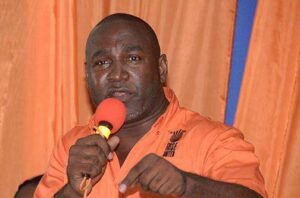
Ja’s land woes coming from way back
Dear Editor,
The issue of land rights and ownership in Jamaica stretches as far back as the era of conquests by European empires who battled for land — the currency of wealth at that time. Even if one is prepared to fast-forward beyond that period we are still confronted with the unavoidable consequences that followed.
The white imperialists began buying slaves from West Africa after the native Taino Indians were eradicated due to the harsh labour they endured under the system of slavery. The trans-Atlantic slave trade was the beginning of the expansion of Jamaica’s land woes. We will remember that those Africans who resisted slavery and fled to the hills were called Maroons. These freedom fighters won the right to their land and it would be an oppressive and regressive step of any modern-day Government to disturb them by permitting mining in their area without any level of consideration for how they came to be where they are and that, at the very least, current governments are to treat with respect the terms of the Maroons’ agreement with their predecessors in governance.
Following the full abolition of slavery in Jamaica in 1838 there was a massive “land grab” that occurred by the wealthy, who wanted to preserve their interests in the region. They rightly understood that land is like wine, it only gets better with time.
Now, there was no consideration for the large majority of slaves who had been dragged from West Africa across the Atlantic to a land unknown to them. Therefore, the greatest reparation that could have occurred was the reapportioning of lands to each slave or family of slaves for their own use. Given they needed a place to settle, raise families, and live, these nomadic ex-slaves started a less sophisticated form of “land grabbing” themselves and sought to settle on unwanted lands and abandoned plantations.
Did you know that after emancipation the owners were given compensation for their losses in human “property”, while ex-slaves received nothing? Nonetheless, the resilience of the black race would not be daunted as the ex-slaves found new ways to make a living. Many of them became peasants and formed villages and communities of their own. Now, with their houses built, black Jamaicans soon turned their attention to extending their villages by helping missionaries construct churches and schools. This was the beginning of something special as access to education for many was just around the corner from where they lived and even where it wasn’t they were happy to go the distance.
This progression continued into the 20th century, but the fight for justice continued as the colonial system of slavery was now replaced with a neo-colonial system of classism, a more subtle form of racial and ethnic divide that saw the blacks at the very bottom once again. The gap of inequity in the society continued to widen and all that happened in 1962 is that Jamaica became independent in theory but not in actuality.
Then a leader who understood history — emerging from the upper class but identifying with the struggles of the lower — dared to reshape Jamaica’s trajectory and dared to challenge the status quo. The great reformer, Michael Manley, had come and one of his greatest accomplishments and that of the People’s National Party would be the regularisation of many of these informal settlements, securing titles for residents of these communities and the implementation of well-needed infrastructure.
There are those who would like to pervert history by spewing all manner of bigotry from their mouths into gullible ears of their listeners who would spare them an audience. Jamaicans need to know from whence they came to know where they are going. Like it or not, majority of Jamaicans are descendants of slaves, and so it is disrespectful to their memory to side with those who politicise the issue of settlement and do not identify with their struggles. To those unscrupulous individuals, I say, keep your tongues behind your teeth.
Joseph Willis
Attorney-at-law
willisjoseph92@yahoo.com






















